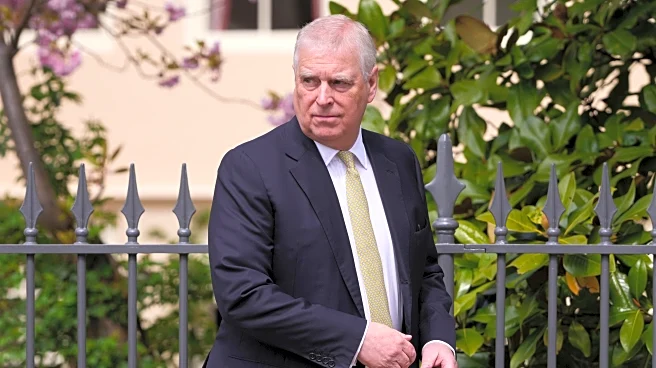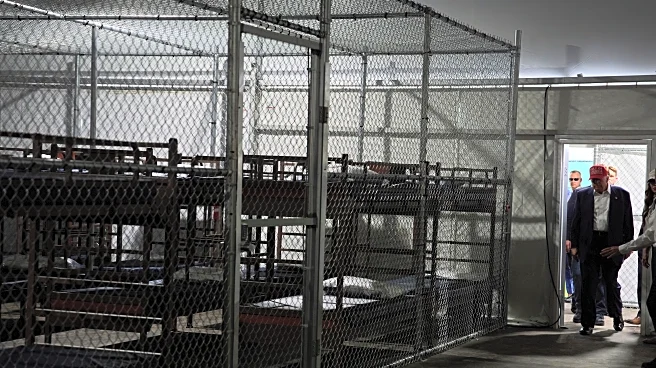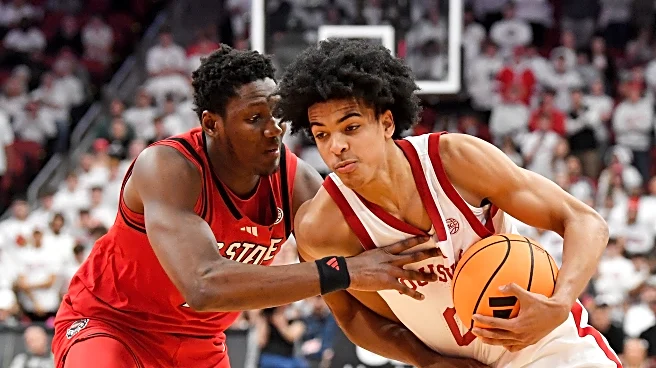What's Happening?
Russia has criticized the BBC following a scandal involving the editing of video clips of President Donald Trump's January 6, 2021 speech. The edited footage misleadingly suggested that Trump encouraged
supporters to attack the U.S. Capitol. Russian Foreign Ministry spokeswoman Maria Zakharova accused the BBC of falsification, drawing parallels to the broadcaster's coverage of the Bucha massacre by Russian troops in Ukraine. The scandal has led to the resignation of two senior BBC leaders amid backlash over the handling of the documentary. The BBC maintains its commitment to impartial reporting.
Why It's Important?
The scandal involving the BBC's editing of Trump's speech highlights ongoing concerns about media bias and the influence of misinformation. It serves as a vindication for President Trump in his campaign against perceived media bias, potentially bolstering his position in legal actions against major networks. The situation also underscores Russia's attempts to undermine public trust in Western media, as the Kremlin is accused of spreading disinformation. This development could impact international perceptions of media credibility and influence public discourse on media ethics and accountability.
What's Next?
The BBC may face continued scrutiny and pressure to uphold its editorial standards and address allegations of bias. The resignations of top executives could lead to internal reviews and policy changes within the organization. Meanwhile, President Trump may leverage the scandal to further his narrative against media bias, potentially influencing public opinion and legal strategies. The situation could also prompt broader discussions on media ethics and the role of public broadcasters in maintaining impartiality.
Beyond the Headlines
The controversy surrounding the BBC's editing of Trump's speech raises deeper questions about the role of media in shaping political narratives and public perception. It highlights the ethical challenges faced by journalists in ensuring accurate and unbiased reporting. The situation also reflects broader geopolitical tensions, as Russia seeks to exploit media controversies to undermine trust in Western institutions. This development may contribute to a climate of skepticism and misinformation, affecting both domestic and international relations.










